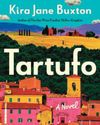
Wonder isn't just for children or fiction; it's a powerful tool in nonfiction that pulls readers into a universe of awe and amazement. From the mysteries of the cosmos to the intricacies of human DNA, infusing your books and articles with a sense of wonder can transform dry facts into a riveting read. Whether you're detailing technological marvels or the unsung heroes of history, here are ways to pick topics that thrill, spin narratives that engage, and choose words that awe.
Let's uncover the art of making readers wonder-and keep them coming back for more.
SELECTING YOUR SUBJECT
Think of wonder as the secret sauce that turns routine writing into a page-turner. Subjects that drip with inherent interest-like the mysteries of space exploration, the alien world of deep-sea phenomena, and the cuttingedge of technologies-are natural magnets for wonder. Dive deep to hook your readers with the extraordinary hidden within the seemingly ordinary.
How do you spot these gems? Start with big questions that push the boundaries of human knowledge and imagination. What's out there beyond the visible stars? How do creatures survive in the crushing depths of the ocean? What futuristic technologies could redefine our future? These questions capture the reader's curiosity.
Wonder isn't only found in cosmic mysteries; it also lies in the minutiae of daily life when viewed through a fresh lens. Take a common object and reframe it: How does a zipper work, its tiny interlocking teeth a marvel of precision engineering? Or what's the journey of a raindrop from cloud to river, a tiny freshwater capsule traveling hundreds of miles, nourishing ecosystems and carving canyons over millennia? By presenting everyday subjects with a twist, you transform the commonplace into magnificence.
This story is from the September - October 2024 edition of Writer’s Digest.
Start your 7-day Magzter GOLD free trial to access thousands of curated premium stories, and 9,000+ magazines and newspapers.
Already a subscriber ? Sign In
This story is from the September - October 2024 edition of Writer’s Digest.
Start your 7-day Magzter GOLD free trial to access thousands of curated premium stories, and 9,000+ magazines and newspapers.
Already a subscriber? Sign In

What Is Your Story Question?
Revision and editing advice to take your first draft to the next level.

Writing for the People We Hope to Become
Elisa Stone Leahy's new middle-grade novel, Mallory in Full Color, tackles the in-between moments of adolescence, when who we are and who we want to become collide.

Creating Community
Whether hot off the presses or on the shelves for years, a good book is worth talking about.

Pat Barker
The Booker Prize-winning author of Regeneration shares the role characters play in developing novel ideas and explains what appeals to her about reimagining mythology.

How to Write in Different Genres
Emiko Jean and Yulin Kuang share tips and strategies for how they successfully write in different genres and mediums.

The Shortest Distance Between Two Points
Ten tips for writing a novel with 100-word stories.

Mayfly Marketing
How to sell your novel in a short-attention-span world.

"You'll be a great essay".
How to write six types of personal essays by finding the funny in your life.

The Idea Factory
Tired of staring at an empty screen? Unlock your inner fiction generator with these surprising inspiration techniques.

Seinfeld Was Right: That's a Story
Use mundane moments from everyday life to create stories that pack a punch.